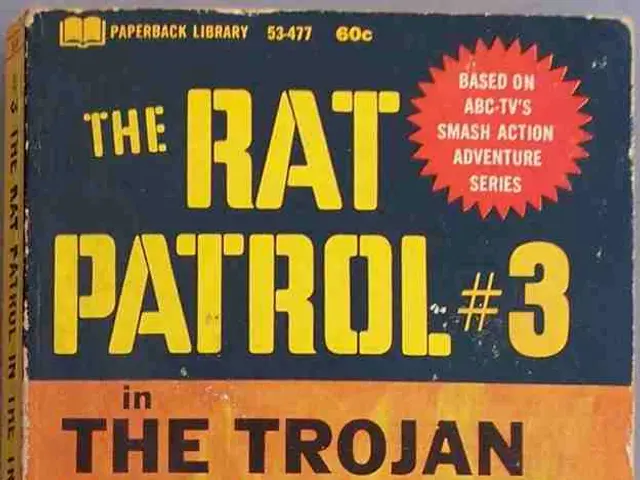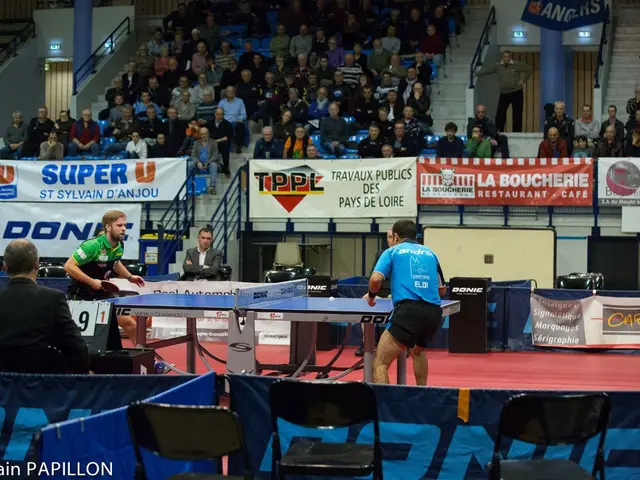European legislators endorse the document in question.
Poland at a Crossroads: The Polarizing Presidential Race
Warsaw, Poland is gearing up for a heated presidential runoff. With over half the eligible voters casting their ballots by late afternoon, the race is shaping up to be a nail-biting finish between the liberal Rafal Trzaskowski and the conservative Karol Nawrocki. The stakes are high, as Poland faces a pivotal choice that could significantly impact its future as an EU and NATO member, with ripples reaching neighboring Germany and Europe.
"Which way forward?" asks Polish magazine Polityka, encapsulating the nation's dilemma. If Trzaskowski triumphs, former Prime Minister Donald Tusk gains a valuable ally and supporter in the presidential palace, endorsing his reform agenda. But if Nawrocki prevails, Tusk could be facing an uphill battle, backed by the conservative Law and Justice (PiS) party. The result could potentially lead to a volatile Poland and early elections, possibly reinstating the PiS into power.
Poland's Rapid Rise
Poland, a member of the EU since 2004, has experienced steady economic growth over the past two decades, except for a brief dip due to the COVID-19 pandemic. The average income has more than doubled since 2015, now at around 2,113 euros. A seamless network of highways, funded partly by the EU, crisscrosses the country. Mobile coverage is extensive, with trains running punctually, and spacious homes with solar panels dot the countryside. Blik, a domestic mobile payment system, is everywhere.
Poland's role as a NATO partner has grown in importance due to Russia's war against neighboring Ukraine, serving as a crucial logistics hub for Western military aid to Kyiv. Fearing Russian aggression, Poland is increasing its defense spending, aiming to spend 4.7% of its GDP on defense this year and maintaining an armed force of 206,000 soldiers, outnumbering Germany’s Bundeswehr.
However, opinions on Poland's position differ greatly within the population. The first round of voting showed Trzaskowski, the liberal pro-European candidate, drawing support primarily from cities. A cosmopolitan figure who champions LGBTQ+ rights and has strong international connections, he is backed by Warsaw residents. In contrast, rural areas see a growing desire for a return to traditional values, less Europe, and more nation.
A Man of Controversies vs. an Urban Icon
Forty-two-year-old independent historian Nawrocki, aided by the conservative Law and Justice Party, plays on people's fears well. He warns the EU wants to transform Poland into a "region with a Polish population," diminishing the country's sovereignty. Despite his troubled past, involving youth boxing, bouncing, and even a mass brawl of football hooligans in 2009, his messages resonate with many in rural areas.
In the meantime, Warsaw Mayor Trzaskowski, a 53-year-old champion of LGBTQ+ rights who speaks five languages, is well-connected internationally from his time as deputy foreign minister. His supporters include urban, younger voters enthused about his vision for a more progressive Poland and stronger ties with EU partners.
Right-wing Extremism in Focus
Another factor in this election is political disillusionment. Many voters are tired of the longstanding power struggle between the 68-year-old Donald Tusk and the 75-year-old Jaroslaw Kaczynski, causing some to turn to right-wing extremist candidates in the first round. Agnieszka Lada-Konefal, from the German-Polish Institute, believes this was a message of dissatisfaction, especially for younger voters, who find neither Tusk nor Kaczynski relatable.
Regardless of voter behavior in the runoff, the close race and deep political and ideological divisions in Poland highlight ongoing polarization and the struggle between liberal and nationalist visions for the country's future.
- The upcoming presidential race in Poland, with Trzaskowski and Nawrocki as candidates, could significantly impact Poland's future as an EU and NATO member, potentially leading to a volatile Poland and early elections.
- If Trzaskowski wins, he would endorse former Prime Minister Donald Tusk's reform agenda, but if Nawrocki prevails, Tusk could face an uphill battle, backed by the conservative Law and Justice (PiS) party.
- However, Poland's position in the European Union and its role in international football leagues, such as the Champions League and European leagues, are not affected by the presidential elections.
- The general news regarding Poland's migration policy and legislation is closely tied to the political landscape, with the election highlighting ongoing polarization and the struggle between liberal and nationalist visions for the country's future.
- In the world of sports, specifically football, the controversy surrounds the political background of candidates, such as Nawrocki, who has a troubled past involving football hooliganism, and Trzaskowski, a champion of LGBTQ+ rights who speaks five languages.








